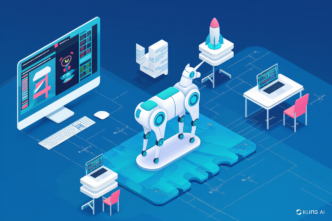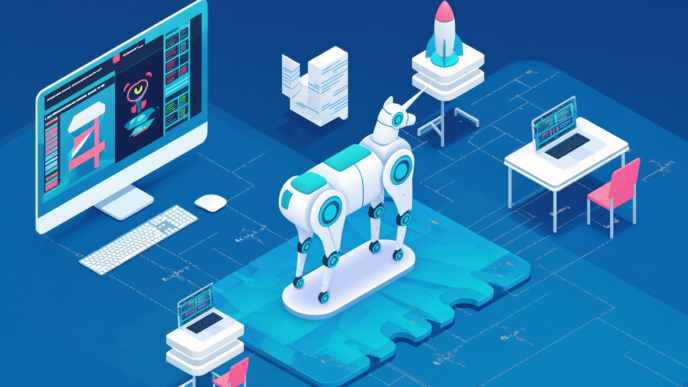The Rise of Open-Source AI Productivity Tools: What’s Driving the Surge?
Mini Summary:
Open-source AI productivity tools are revolutionizing how individuals and businesses manage tasks, code, and collaborate. As demand for cost-effective, customizable AI solutions grows, open platforms are rising to meet those needs—driven by innovation, community support, and transparency.
Why Open-Source AI Is Surging in Productivity Spaces
This tools are gaining massive traction across industries. From collaborative document editing to intelligent scheduling assistants, these tools offer flexibility and affordability compared to proprietary software.
Key drivers behind their popularity include:
- Community-driven development that enables rapid iteration
- Customization options suited for startups and enterprises alike
- Lower costs and license freedom
- Data transparency and security—especially critical for regulated industries
As businesses prioritize efficiency without vendor lock-in, open-source AI platforms are quickly becoming the go-to choice.
Popular Open-Source AI Productivity Tools in 2025
1. Auto-GPT Forks for Workflow Automation
Auto-GPT-inspired projects are now embedded in team dashboards, automating task delegation and documentation.
2. OpenLLM for Custom AI Chat Interfaces
Built for developers, OpenLLM lets teams host their own chat assistants, enhancing internal productivity.
3. Jupyter AI
Blending notebooks with language models, Jupyter AI streamlines coding, data analysis, and report generation—all in one place.
4. CalendAI
An AI-driven calendar planner that integrates natural language requests with open-source architecture.
5. LibreChat
A self-hosted, privacy-respecting alternative to ChatGPT, enabling internal communication workflows enhanced by generative AI.
These tools are often integrated into existing platforms like Notion, VS Code, or Slack using APIs and plugins—further extending their reach.
Business Benefits of Going Open-Source with AI
Companies are discovering long-term benefits when they integrate these tools:
- Reduced SaaS dependencies
- Better control over AI behavior
- Full access to source code and model weights
- Compliance with internal IT/security protocols
In fast-moving industries like software development, education, and research, these tools provide a critical edge.
Challenges and the Road Ahead
Despite their benefits, open-source AI tools come with hurdles:
- Higher initial setup complexity
- Limited user support
- Risk of fragmented maintenance if community fades
Yet the ecosystem is maturing. Backed by vibrant developer communities and GitHub sponsors, many of these tools are becoming enterprise-grade.
Final Thoughts
The growth of open-source AI productivity tools reflects a broader movement toward transparent, flexible, and scalable solutions. As organizations seek more autonomy in their AI stack, expect open platforms to dominate the next wave of digital productivity.
External Links
• Stanford researchers emphasize the impact of open-source AI on innovation.
• Popular open-source AI productivity tools often gain traction on GitHub
• Open-source AI tools could contribute significantly to productivity gains, according to McKinsey.
Internal Links
• Five AI Trends 2025 Every Tech Leader Must Track
• Gemini 25 Flash Lite Stable















whoah this blog is magnificent i love reading your articles. Keep up the great work! You know, a lot of people are looking around for this information, you could help them greatly.